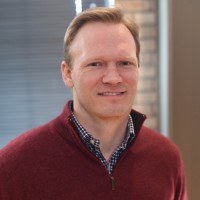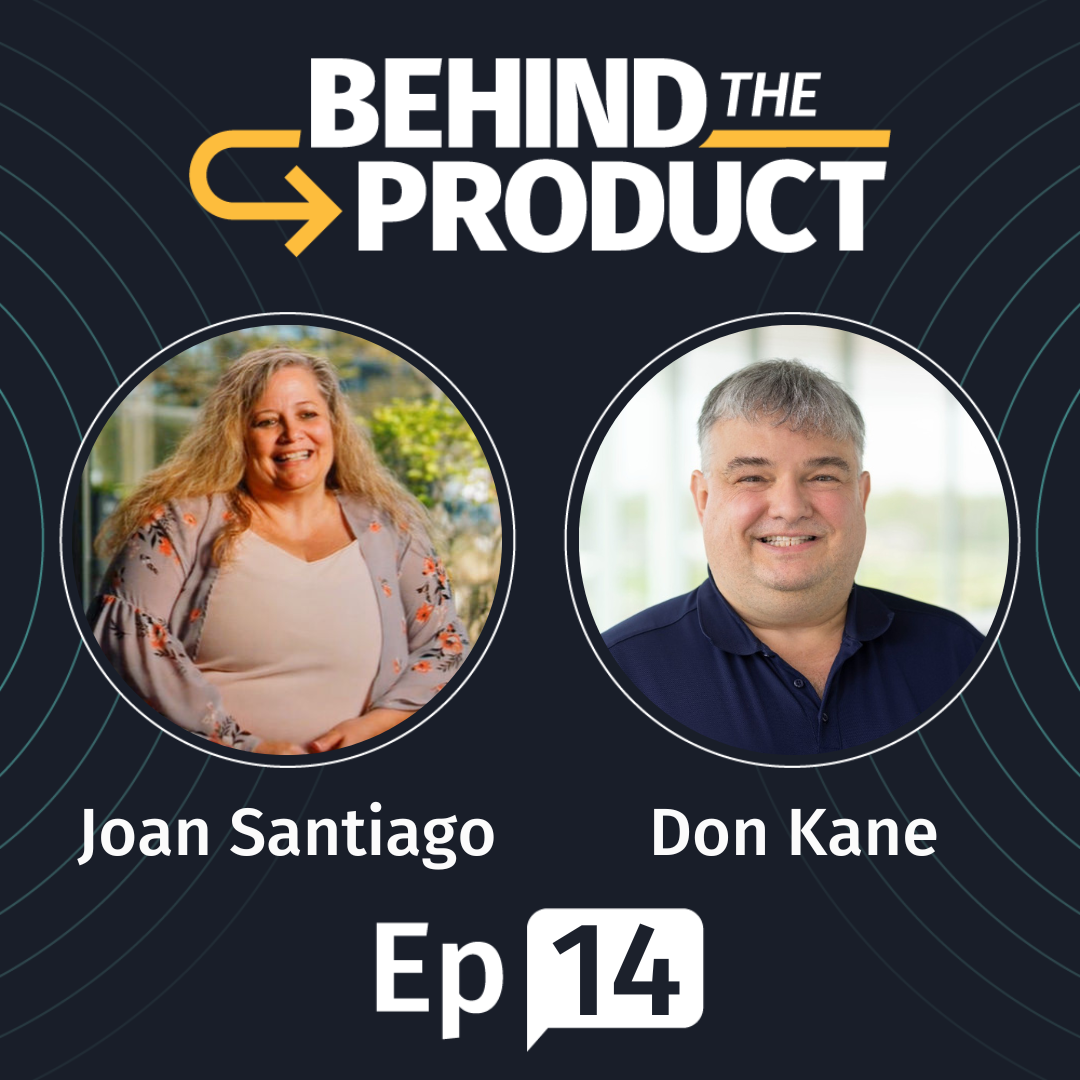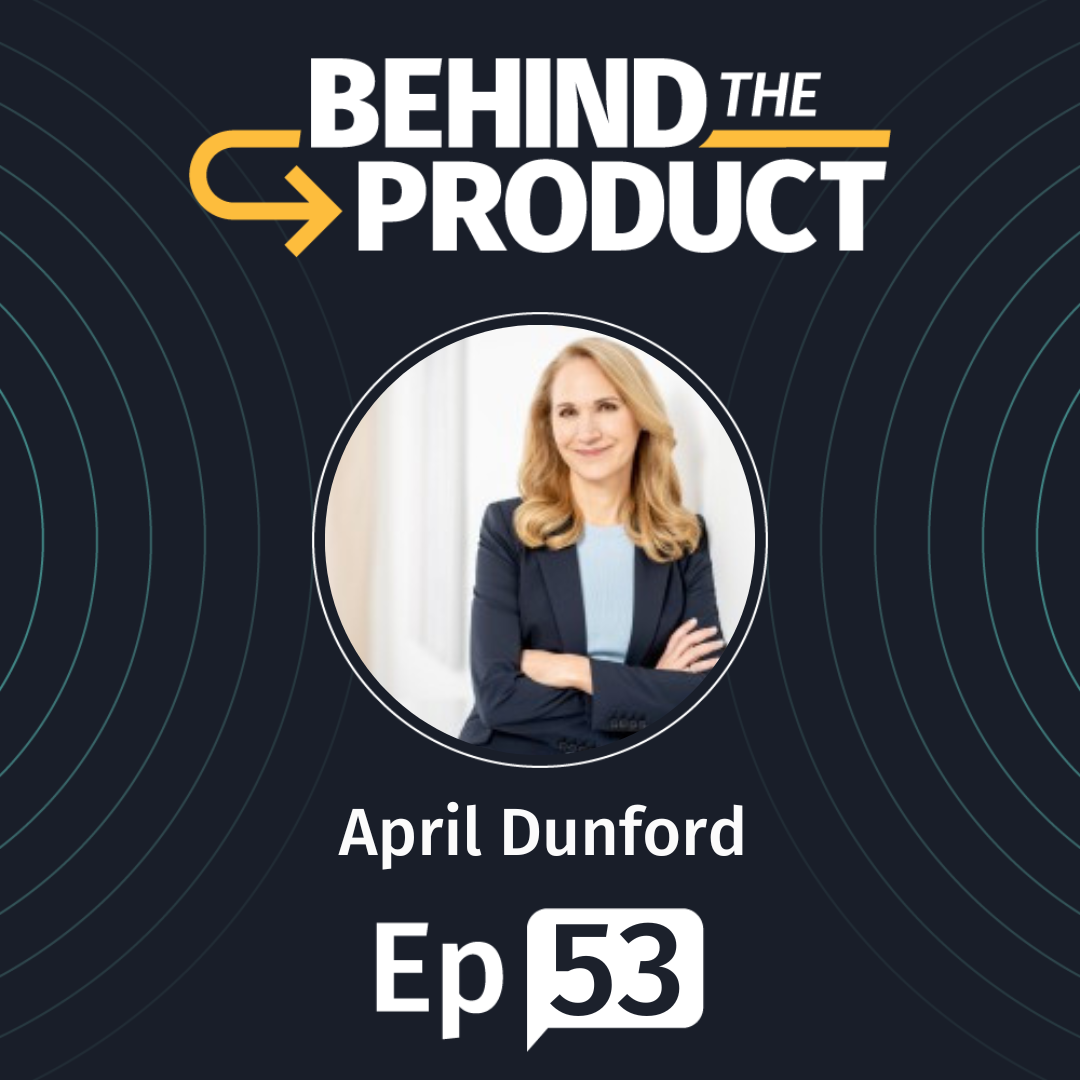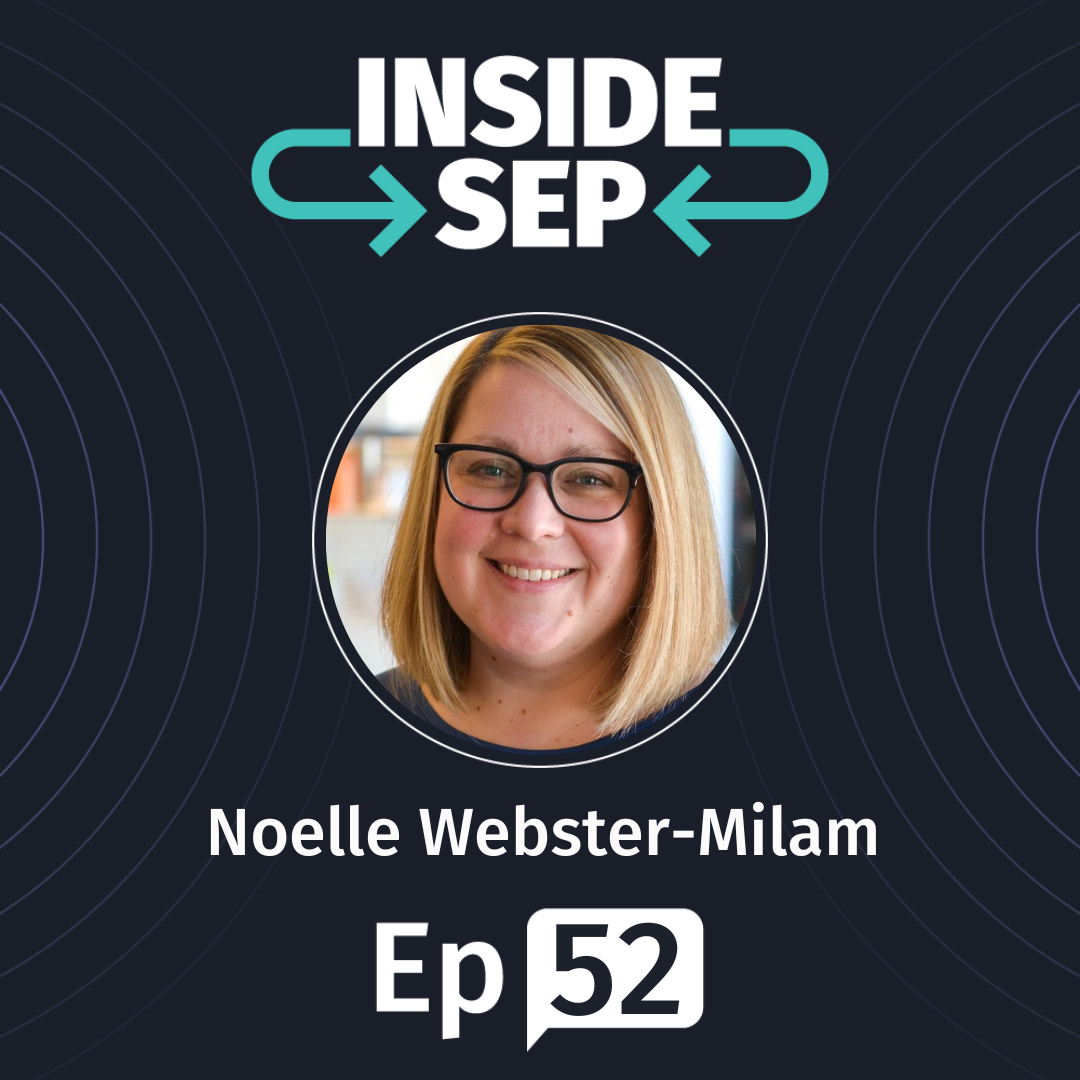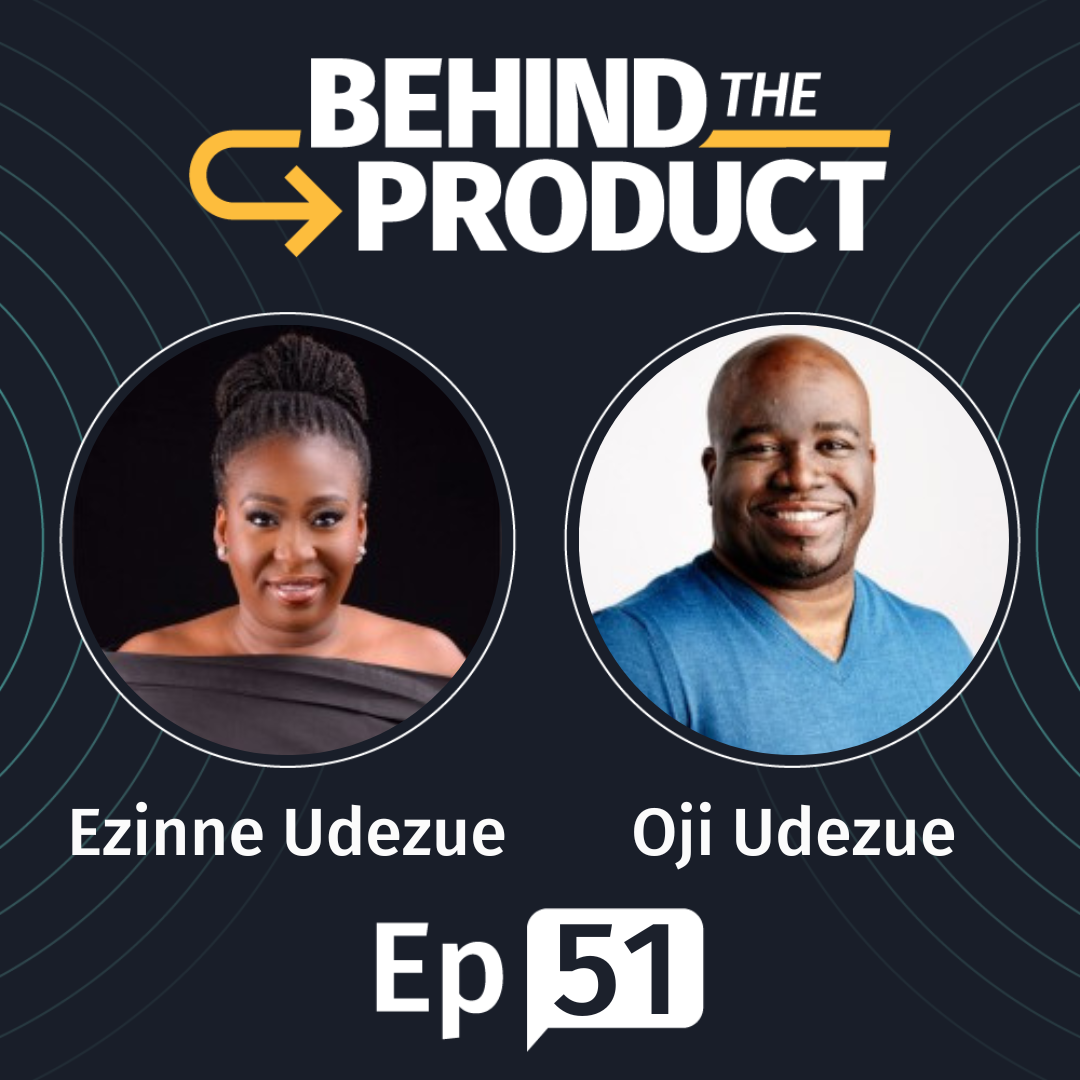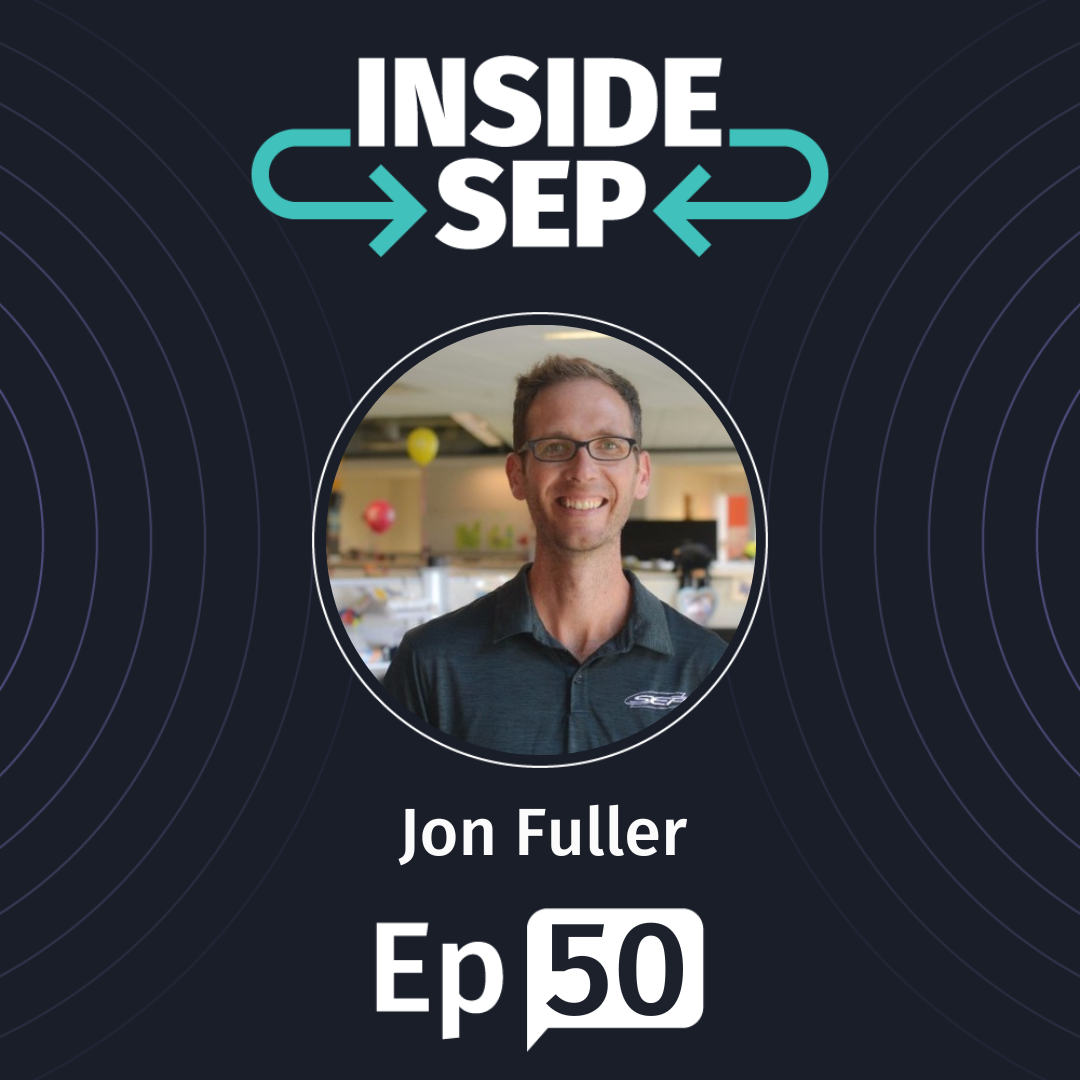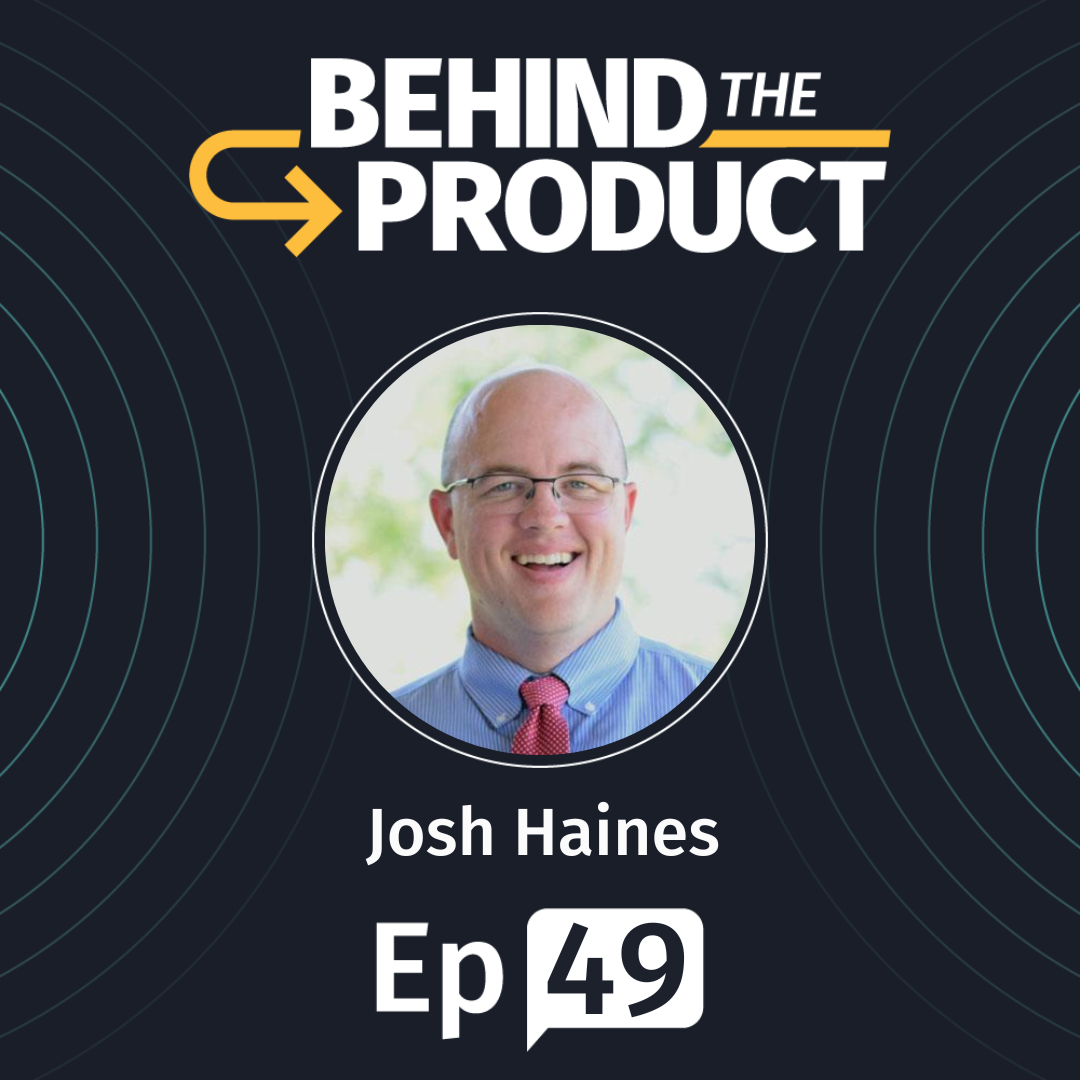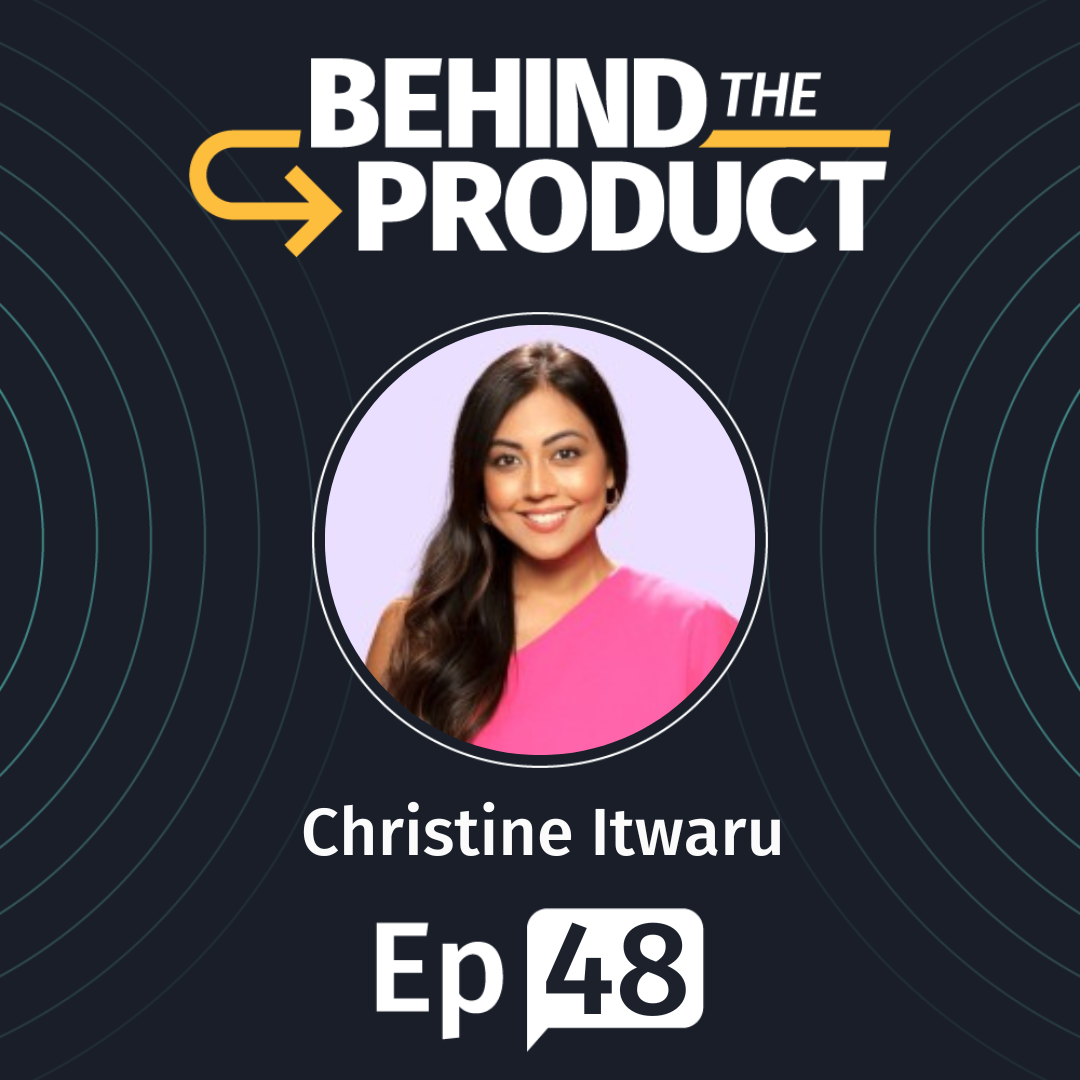Zotec
- 0.5
- 1
- 1.25
- 1.5
- 1.75
- 2
Zac Darnell: Welcome to Behind the Product, a podcast by SEP, where we believe it takes more than a great idea to make a great product. We've been around for over 30 years and building software that matters more. And we've set out to explore the people, practices and philosophies to try and capture what's behind great software products. So join us on this journey of conversation with the folks that bring ideas to life. Hey, everybody, welcome to Behind the Product. I'm your host, Zac Darnell. My co- host for the show is Jim LaRue. Jim is an engagement manager here at SEP and has been with us for 12 years. He has had the opportunity to get to know our guests over the past few years and helped bring their story to you. Our guests are two product leaders from Zotec, which is a healthcare technology company based here in Indiana. Our first guest is Joan Santiago, and she's been with Zotec for the past 16 years. And in recent years, has focused more on the digital product vision and execution. Don Kane, our other guest has been with Zotec for almost four years, helping to lead a digital transformation, bringing new products, practices, and philosophies to the team. They've had some interesting challenges and some unique successes through this journey, including an application that many Indiana residents have used during the pandemic to view test results and schedule their vaccines. So with that, let's jump in. Hey, everybody, welcome to Behind the Product. For this show, I'm joined by my friend, Jim LaRue, as my cohost, and we're talking to two folks from Zotec, which is a company here in Carmel, Indiana. We're joined by Joan Santiago and Don Kane. They're both product leaders and have been at Zotec for quite a while now. Joan and Don, how are you?
Joan Santiago: Doing great.
Don Kane: Very good. Thank you.
Zac Darnell: We appreciate you guys joining us and telling us a bit about your story and kind of the journey that you guys have been on here recently. And most recently, some of the products and contributions that you guys have made during this pandemic. Super excited to jump in. Joan, for some context, can you tell us a bit about who Zotec is, what you guys focus on? Just tell us a little bit about the company.
Joan Santiago: Sure. So our founder, Scott Law, founded the company back in 1998. That main purpose is really to improve the business of healthcare. And so, we are the largest private revenue cycle management provider sort of medical groups in the United States. What does that mean? Zotec manages 120 million medical encounters annually across the country for 18,000 providers nationwide. Our goal is to always to improve business for healthcare.
Zac Darnell: Wow, I didn't there was that much breadth in your guys' portfolio. That's tremendous.
Joan Santiago: Absolutely.
Jim LaRue: Now, Don, I've kind of seen some transition through the years. Do you guys feel like you're more of a service organization or a product organization or a combination between the two?
Don Kane: I think when I started here, we definitely were a services company. And Jim, you were here in some of those early meetings where software was almost a dirty word. I think during our time period, over the last three and a half years, we've gone from pure services to a technology-enabled services company. And now when you look at some of the new stuff that we're doing with our scheduling and client registration and some of the stuff that we're doing with ISDH, we're actually now morphing even a little bit into that software front. I think even if we may not consider ourselves a software company as of yet, many of our new clients that are buying us as a service are relying heavily on front-end software. So to them, I think it's going to be even more blurry.
Jim LaRue: Yeah, certainly always felt like a blurry line. Joan, you said just before this, so you've been here for 16 years, so much longer than both Don and I have been a part of Zotec's story. How do you feel like things have evolved over the past four or five years for your role specifically, but also for Zotec?
Joan Santiago: I think the awesome thing about Zotec is always never settling, always pushing us forward and trying to look futuristically, and where we want to go as a company. Our leadership does a great job of that. It's awesome to sit in rooms and just listen to the interactions. So, I've been here 16 years, I've never questioned the direction of the company. I feel like we always have opportunities given to us to move forward in our roles with the organization itself. I've seen it really evolve from what Don said and really a more waterfall methodology I think that we were so familiar with where there wasn't a lot of interaction with our stakeholders and with our clients and things of that nature from the technology side of the equation. It was really driven a lot by our internal operational team. And I think as a company, we really have evolved moving into that Agile approach and using Scrum and making sure that all teams are represented in those conversations because I think to come to a solution that is progressive and forward-thinking, it needs a collaborative discussion. It's just allowed us to be really who we always have been, collaborators and innovators and doers. And so, that's what our team is made up of and I think that's why I've stayed at Zotec so long is the passion and persistence and the dedication of the team in general, and never worrying about the next endeavor and the challenges that come with growing as a company and growing into those new kind of positions I guess you would say, or new futuristic applications. So, it's just amazing on the aspect of the people versus process versus technology. That's really a model of ours as well in making sure that all three of those are represented in pushing us forward.
Zac Darnell: That's an amazing story to hear. As a company that also has uniquely long tenure, how do you think you were successful in accomplishing that? That seems like a really, really tall order, that's a hard thing to do. What made you guys successful over the last few years in doing that?
Joan Santiago: I can speak on my perspective for being here with the company so long. I think it's the trust in the leadership. You don't always have trust in your executive team with your downstream employees. And I just don't think that we look at each other as just as an employee to an employee, we really are a family. And so I think the direction that Scott law and the executive team had in taking us was really futuristic in where we needed to be going to be able to service the type of clientele and to continue to improve the health care business. And so, I think it comes down to the trust of the team on each other. Also, it comes down to having critical conversations and being able to openly discuss concerns or pains, growing pains, so to speak, and not feel like you're unheard, they go unheard. But really be able to look at them and identify what is root cause of that pain and how do we work through that and get to that next level? So I really do think it takes communication and trust from top to bottom down an organization, I think we had that.
Don Kane: I think coming in as the new guy, my perspective is slightly different. We use a lot of sports analogies in Indiana. They had a championship team and a championship culture. When I joined the team, it didn't take me long to get that feel, but at the same time, I feel they brought me in, and Scott, he brought me in as a free agent and he really let me make some changes. So, I had to respect the culture that they had, but I also had to add to it as well. I think I did that by kind of earning the team's respect, but I also brought in some outside people and some new leadership as well. And we really built upon that championship foundation they already had. And without that strong culture, sometimes that outside influence is very disruptive. I think that the trust that had already been built with the leadership that was there and the trust that that leadership put into the new leadership they were bringing in, that combination made it easier for me to retain those tenured people. That's what you want when you're building a team, you bring in the new players, you want them to meld with you all, and you want to keep winning. And I think we've really done that over the last three and a half years.
Zac Darnell: I love the sports analogies. We've mentioned this ISDH project a couple of times. I'm kind of curious, Joan, can you tell me a little bit about what that product or project is?
Joan Santiago: Sure, absolutely. So, we had a concept, a bill pay care solution that is utilized and we developed back in 2019 for relationship with Walmart Health if anyone's familiar with that. Walmart decided to get into the healthcare field and has clinics all over the country, nationwide. And so, we are their technology underneath. We saw the need when the pandemic hit. We're always a company looking to help in any way we can and really care about people. So, our team reached out to the state of Indiana to understand what were they going through and offer assistance, just, hey, we know testing is going to start, we'd like to offer any type of assistance that we can. So, within a week's timeframe, we were able to really understand their needs and desires in order to really be effective in the COVID testing and understanding the results of that testing. And so, we were able to pivot our patient bill care solution and capitalize that and use that in the testing arena for COVID testing. And that's how we got started kind of into working with the state of Indiana, was really the need to, how can we help get our fellow Hoosiers back to work and back to their normal state of life so to speak. In 2019, that product was originally kind of developed. 2020, we took it and we re-imagined it, and we were able to take a 100% manual process and digitize that for the complete process. It wasn't just about how can we help the state be able to accomplish performing these tasks, but also how can we help make it a much easy seamless process for the patient or for a person to actually even schedule and register for those appointments. And so, it was built from a pandemic that happened that no one expected. It allowed us to really walk the walk that we always talk about, caring about others and putting our best foot forward on helping humanity itself in empowering the healthcare individuals to really focus on healthcare and let our technology do the work for them underneath. And so that's how we kind of got started into our relationship with the state. And it did evolve into a couple of other aspects of that. We moved into flu vaccinations first in 2020, and then immediately following that, we kind of had two quick changes with the states, pivotal changes was COVID rapid testing, be able to do rapid testing instead of three days for results. Being able to get that instantaneous result and being able to collect that data. As well as being able to vaccinate individuals against COVID. And so, those were things that came through later in the year of 2020 and that we're still actively a part of in helping service the state's needs and being their technology partner.
Zac Darnell: Wow. You mentioned challenges, I would imagine there were some unique challenges for these products. Things that come to mind are ADA compliance, maybe HIPAA in some ways, language support, things like that. Tell me a little bit about some of the unique challenges for this ISDH project.
Joan Santiago: There were some. I think always in any technology, there's always challenges in anything that you do as a technology company. It's how you look at them and know that you can work through those solutions. The first challenge was, we wanted to create a seamless solution. We interacted not just for us, but also to the state. And then the state is also interacting with the public. They're interacting every day on their website and providing statistics and data to citizens as well as governmental agencies and things of that nature. And so, it was being able to create that seamless solution that wasn't just about scheduling an appointment and having that provider be able to provide that service to that patient, but it was also all the reporting and regulatory types of things that were required to make sure that was also a seamless process. We also wanted to make sure that we were always communicating with those patients because it was such a changing landscape. It seemed like every day new challenges or changes were coming down to the state of Indiana from the federal government. And so, being able to really listen to their needs and being able to provide a solution that could also interact with a patient on critical information that they needed to have was also something that we really worked hard to create and deliver on. It was looking at the whole totality of the picture and saying, it wasn't just one facet we were trying to deliver a digital solution for, but it was really just the entire experience that we wanted to be able to provide to the state of Indiana and know that they had confidence in everything that was being done by the technology, and being able to be delivered to them for any type of reporting or conversations that they were having at a level that was not known to us necessarily.
Don Kane: You mentioned a lot of the private data aspects. We've already had to deal with that throughout the history of our company. What was really interesting for me, the two things where I really think that were the challenge for us is as a technology- enabled services company, we did not have to worry about things like browser support or language support, because we could control that environment and deliver our service. So we could provide the tools and stuff that we needed to our employees to be able to deliver the service. With this particular project, we lost all of that control. We were going out to a much broader audience, was the state of Indiana as a whole and all of the Hoosiers that are in the state, we couldn't control the browsers they were on. And in addition to that, when you really think about it, Joan, you might be able to tell me the languages we ended up doing, but we were pushed very quickly to do a couple of different languages. And for anyone who's ever done those types of work before in product, that's not a small undertaking and a small feat because there's an internationalization portion of that, which is architectural in it's nature, but then there's also all of the translation that needs to be done as well. So we needed to do all of that, and that was something that as a company, we had never, once again, stepped up to and been challenged to do before, and yet we were able to do it in a very short timeframe.
Zac Darnell: Wow.
Jim LaRue: You guys have mentioned both a couple of the complexities. I know, Joan, you mentioned changes coming down from the state with which vaccine could be given to who and how often and how to schedule followup appointments. That's just a little bit of the complexity. I imagine that complexity sort of influenced the structure of the project, maybe how you either, either a process you followed or how you structured your team. Can you just talk a little bit about how you handled the complexity?
Joan Santiago: Sure. It was really a passion project for the entire company, to be honest. We have a great team of innovators and collaborators and doers. I know I've said that before but it's really true. I think once we kind of understood at a minimum what the requirements were, we were really able to capitalize on the team that we had and really allow them to shine a light on them on things that they really love to do, and that's just develop and deliver quality products, and be a part of the team goal. And so, we always look at things as a team. I think we aligned people on the teams to help, and really, people stepped up and volunteered and said, I want to help and be a part of this, and even utilized outside normal company time to be a part of this project because it was so near and dear to them personally as well. And so, it helps when your team as a whole is always willing to challenge themselves and be able to step up and say, I think I can take this on, this is something I understand the need for and I have the experience and knowledge to do that and to help others complete this task. And so, we really saw a lot of that happen with inside the team, the development team in creating the solution. I think we had a lot of the core foundation there too though that really helped benefit us in being able to deliver the solution that was being asked of us. So there were a lot of pieces that were already in place in our application. And so, it was just taking that and kind of pivoting that slightly to be able to re- imagine that, so to speak, for the use of the state. And yeah, there are always challenges and aspects of what that client needs, but it's no different than any other challenge from any other client. You have to listen to what they ask and come up with the best solution. So I think we were able to complete that because of the team, because of the teams know where they excel at, and those team members really aligning themselves and saying, this is a piece of area of the functionality that I think I can bring the most impact in the shortest amount of time, because when you look at it, we really had 10 days to create a product and put it out into the field to be utilized for COVID testing. And so, from that initial conversation to the first piece of deliverable solution to the state was a 10 day process. So I think you have to rely on your team to really work together and orchestrate who are the best individuals to be on a project based off of where the changes were needed in the application, and really just let them go and push through it, heads down, and just excel. And that's what they did.
Jim LaRue: Don, you brought up the waiting room and I know it didn't initially get launched with the waiting room. I feel like there's a pretty cool story there, pretty cool pivot about how you guys adapted. Obviously, it'd be tough to anticipate the load whenever this was first opened up, and then moving from 80 plus to 75 plus to 70 and all that, every tier hitting you with hundreds of thousands of more encounters. Can you talk a little bit about how the waiting room came to be?
Don Kane: Joan, feel free to elaborate as well, but I think we were very, it didn't go out initially, but during the initial testing, we did start having some problems with some crashing, and we realized that we weren't going to be able to predict the subscription rate and we might run into some issues. And as we started running into those issues, it's another great example of where an agile methodology allows you to really make some quick changes. That was a whole new UI, a whole new experience. There were some architectural changes made in the backend to allow for people to be aware that they were still connected and things were taking a while. I think by the time we finally got that out into the public's hands, there was even kind of a countdown. I don't remember if it was where they were in queue or an estimated wait time or something, but really highly informational to them to know that they hadn't just lost their connection. Think of all the times that you've been on sites and all of a sudden, you're not sure everything's in your cart still, or if your checkout still going through. We were able to handle all of that. If it wasn't very, very last minute, it was directly after launch, which you can't do that in a waterfall methodology. So I'm 100% confident that all of the work we've done over the last three and a half years enabled us to really take on this challenge and be successful.
Joan Santiago: I'll just add to that. I agree with Don. It was in kind of conversations before that. But it rapidly got developed into the wild so to speak for utilization. And we did continue to evolve that application even after we got it out because there were other uses that we saw that would be beneficial. And so, those mass vaccination sites, driving traffic to certain sites and helping them understand those were going to be available to them, that was another aspect that that type of application allowed us to kind of bring on and help assist the state in driving those initiatives, so to speak. So, it definitely was something that allowed us to gate the traffic and to ensure that we never went down. And that was really our, our mission was we never wanted to drop anyone's request into our system. And so, that was just another way that we were able to utilize and ensure that that didn't happen, as well as continually looking at and monitoring the system and making application improvements on optimizations and throughput, it's in things of that nature, which is normal for any technology company, but it was really at a heightened level on the product that we were working on for sure.
Zac Darnell: I've got one last question for each of you really quick as we wrap up. What's one maybe piece of advice or nugget of wisdom that you have incorporated into the way that you show up every day by working on this project over the last year?
Don Kane: That's a good one. Who's going to think of it first, Joan, let me see.
Joan Santiago: Never felt limited. I think we sometimes limit ourselves to what we think we can do. I think it was disproved very much multiple times over and over again in this last year that we can do so much more than what we think we can, and it takes a village to accomplish great things, but to be just a small contributor to that village can make a huge difference. And that's why I really have learned and really instilled in others over the last year, I think that I always was an individual contributor and it was important to pass and fail as a team. But it was never so seen until this last year that it really does take everyone. Don't set limitations on yourself because you can so exceed it if you just go by anything's possible and know that you're working together as a team, and you have people to depend on.
Don Kane: It's interesting, I would have gone to a similar place that Joan went there. We brought in Kevin Bailey, one of the founders I mentioned from Slingshot who now runs, he works heavily with powder keg, but he also does some other work as a growth mindset coach. And we brought him in for our product leadership team. And we learned about the hero's journey and how at times during that hero's journey, you're going to run into those obstacles. And part of what you do is you go find your supporters, the cast that's going to help you conquer that. I think the thing that I've learned that's just, I don't know how to say quite it's a little different here, is most places you work, you kind of know who the hyper- performers are. They're kind of known and you kind of go to them. And what's surprising at Zotec is, it's sometimes hard to know exactly who the hyper- performer is because there's just so many of them mixed in. There are certain people you can absolutely, like any culture, rely on high performers to excel, but the breadth at which people can surprise you here is just, it never ends. So I think the combination of what Joan said is never feel like a task is too big. But the second thing is, just know that the supporting cast around you is just as motivated to succeed as you are. And those two things have worked great for us.
Zac Darnell: That's great. I love that. Those are both very good reminders for anybody that's been doing this for a little while. Joan, Don, thank you so much for your time. Thank you for joining us on the show and just telling us a little bit about your story, what you guys have been through, and some of the things that you've learned along the way. I appreciate it so much.
Don Kane: Well, thank you for having us. We were more than happy to share and we've really enjoyed the partnership with SEP over the last three and a half years.
Zac Darnell: Thank you. Appreciate that.
Joan Santiago: Thank you, Darryl. It's been a pleasure today for sure, and Jim.
Zac Darnell: Oh man, Jim, we just got done talking to Joan and Don. I felt like I walked away with some new things I didn't know about them. They're a very little large impact company here in Indiana. I didn't really understand all that Zotec touched. So that was really cool to learn. And just some of the things that they've gone through over the last few years as a company. Love hearing how some of these agile and digital transformations are lived out over years inside of a company. You've been working with them for the last few years. What were some of the things that you pulled out of that conversation you think that were interesting?
Jim LaRue: It was really cool to watch and have even a small part in it was a lot of fun.
Zac Darnell: Yeah, I mean, that's amazing. Joan mentioned that there was like a 10 day period to get their first product for the ISDH effort out the door. That is an amazing turnaround time. And I love what you're talking about this idea, bringing intentionality to not solely being a service company, but the way that Don put it, this technology supported services company with collaboration and an organization around it. I love that as well. The other thing that I thought was interesting as part of that was the focus on talent retention, very hard to do in our industry as you and I both know. SEP has a very long tenure talent retention, which is kind of unique. And it sounds like Zotec also has that. And as part of this transformation, that being important for them organizationally, yeah, we're going to bring in some new folks, but we're also, we want them to meld well with the existing team in a way that works well organizationally to still move forward, but maybe in a new way. I love that poll. The only other thing that I pulled out of that conversation was, Don talked about language support. I know you and I have seen this numerous times. Somebody has relatively, I'm going to say" simple idea" for a feature, and doesn't really understand how sometimes the, again, " simplest ideas" are sometimes the hardest things to implement to a software product. I feel like I run into that constantly. I'm sure you do as well. It doesn't seem to ever go away. That's always something that similarly you run into in different projects over time.
Jim LaRue: Yeah. And the localization problem, which is what you call the changing from English to Spanish to French, to whatever language is on the page, can certainly seem like it should be very simple. All the words and everything is just there. But then you start talking about character length and how that's going to impact screen layout, and it can get really complicated really fast.
Zac Darnell: That's so true. Lots of good nuggets of learning and wisdom inside this story with them. So, Jim, thank you for joining me as my co- host on this one. I appreciate you. And thank you for our listeners for checking out the show.
Jim LaRue: Yeah. Well, thanks for having me and it's fun as always.
DESCRIPTION
Unexpected changes and multiple stakeholders make building user-friendly software a challenge, to say the least. Zotec's Joan Santiago and Don Kane know this first-hand after developing the ISDH's COVID-19 testing and vaccination scheduling application. In the midst of the chaos, they were grateful for their team's Agile approach, which has allowed them the flexibility they need to make important updates to the product.
Of course, the Zotec team weren't expecting the pandemic to hit and didn't have this product planned ahead of time. Thanks to their solid foundation as a team, they were able to reimagine an existing product to work for COVID-19 test scheduling in a matter of 10 days. Later, they pivoted the product to accommodate vaccination scheduling.
Zotec's goal was to create a seamless solution, not only for patients and healthcare providers, but also for the regulatory and reporting needs the State of Indiana would have. Don and Joan share the unique challenges they faced during this process, and Joan emphasizes how she's seen her team exceed what their perceived expectations time and time again.
Joan and Don also share about Zotec's transition from being a pure services to being a technology-enabled services company. They discuss the importance of a championship culture, trust, and honest conversations to their long-term success.
Join us to hear the full story of how Zotec empowered healthcare professionals to focus on healthcare in the midst of the COVID-19 pandemic.
You can find more information about this podcast at sep.com/podcast and subscribe wherever you get your podcasts. Thanks for listening!
Today's Host

Zac Darnell
Today's Guests
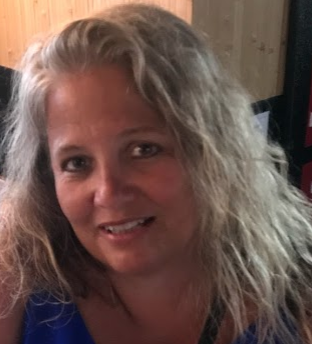
Joan Santiago
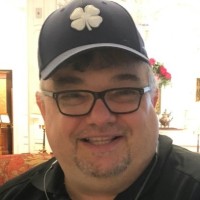
Don Kane
